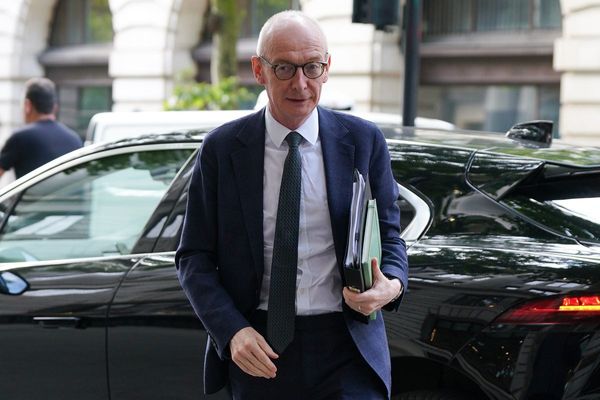
In its final days of power, the Trump administration is launching a slew of major last-minute policy changes aimed at cementing its legacy and boxing in the incoming Biden administration on issues including China and Taiwan, Cuba, and the war in Yemen.
Just 10 days before leaving office, Secretary of State Mike Pompeo announced on Sunday night that the administration would be designating Yemen’s Iran-backed Houthi movement as a terrorist organization, a decision aimed at cracking down on the rebel group. But international aid groups warn the sanctions designation could seriously hamper their ability to deliver lifesaving humanitarian aid to the war-wracked country.
Over the weekend, Pompeo also announced that the United States would be rolling back a decades-old policy of “self-imposed” restrictions between American and Taiwanese officials that takes aim at a central tenet of the so-called “One China” policy status quo. The United States maintains close ties to Taiwan, but China considers the island part of its territory. The move drew swift condemnation from officials in Beijing.
And on Monday, Bloomberg reported that the Trump administration planned to designate Cuba as a state sponsor of terrorism, reversing an Obama administration decision and throwing a major roadblock into the incoming Biden administration’s reported plans to swiftly pick up where Obama left off in trying to renormalize diplomatic ties with Havana.
Veteran diplomats and foreign-policy experts describe the flurry of eleventh-hour policy announcements as parting shots from the outgoing administration deliberately aimed at hampering the incoming administration’s foreign policy.
One U.S. official, speaking on condition of anonymity, referred to the moves as “fire sale diplomacy.”
The announcements themselves won’t outright prevent President-elect Joe Biden from rolling back President Donald Trump’s foreign policies, experts said, but will make it more politically and diplomatically difficult to do so.
“You have a whole group of things coming together as the administration leaves,” said Anthony Cordesman, a scholar at the Washington-based Center for Strategic and International Studies. “This administration is certainly going out with more of a bang than a whimper.”
Cordesman said there are ways the Biden administration can try to ignore or sidestep the latest policy pronouncements that don’t completely box in its foreign-policy priorities. But they represent diplomatic land mines the Biden administration will have to carefully work to avoid.
“If you should call back the designation of terrorism in any debate over Yemen, [opponents] can accuse the Biden administration of being soft on terrorism,” he said. “Any time that officials from Taiwan want to talk to the United States … the people who are supporters of Taiwan can point to the fact that the previous admin[istration] has taken this policy stand.”
Taiwan’s representative office in Washington praised the administration’s decision. “The State Department’s actions to further Taiwan-U.S. engagements reflect the strength & depth of our relationship,” the office said in a statement sent to Foreign Policy. “We look forward to broadening the Taiwan-U.S partnership in the months & years ahead.”
On a more basic level, the storming of the U.S. Capitol by a pro-Trump mob last week that left five people dead could leave a lasting impression with American allies and developing nations where the Biden administration hopes to engage in democratic transition efforts. The attacks, which marked the first time the Capitol had been breached since the British burned Washington in 1814, sparked international condemnation, with close U.S. allies and even adversaries such as Russia and Venezuela calling out the violence. Some veteran foreign-policy experts are already questioning whether Biden should move forward with his grand plans to host a “summit of democracies” during his first year in office, given how events in Washington have clouded U.S. efforts to promote democracy abroad.
But the terrorism designations in Yemen and Cuba will represent a thorny issue for the Biden administration, experts and officials said, because the incoming State Department would face the political burden of demonstrating that the designated groups had changed their behavior to roll back the designations or potentially risk criticism from congressional Republicans and foreign-policy hard-liners.
Pompeo, who has been circling Twitter with victory lap-styled missives celebrating the outgoing Trump administration’s purported foreign-policy accomplishments, is set for one last hurrah on Tuesday with a speech at the National Press Club outlining threats from Iran and al Qaeda. The State Department has been encouraging diplomats to pack the house for the speech despite an uptick in coronavirus cases nationally.
Pompeo has been vocal in his criticisms of the incoming administration’s plans to revive the Obama-era Iran nuclear deal, which Trump withdrew from as part of his administration’s so-called “maximum pressure” strategy to economically and diplomatically isolate Tehran. The Houthi designation also appears connected to an effort to sanction U.S. adversaries as the Trump administration runs out the clock.
In the weeks since the U.S. election, the United States has slapped sanctions on companies and individuals connected to Iran’s metals industry; sanctioned Venezuelan officials involved in imprisoning Americans working for the U.S. petroleum refiner Citgo; and sanctioned several Cuban military-owned companies. In late December, the administration also added dozens of Chinese companies, including semiconductor and drone manufacturers, to a trade blacklist as part of its efforts to exert pressure on Beijing in its final month in office.
On Yemen, the designation of the Houthis as a terrorist group will push the country, already considered the world’s worst humanitarian crisis after six years of war, closer to the brink of famine, according to aid groups and top U.N. officials.
Humanitarian organizations that deliver lifesaving supplies to civilians in Houthi-controlled parts of the country said the designation will make it immensely more difficult to operate there. U.S. lawmakers who oppose the move, including Democratic Sen. Chris Murphy, who sits on the Senate Foreign Relations Committee, has also argued it will upend fragile peace talks between the Houthis and the internationally recognized Yemeni government.
“The consequences will be felt acutely across a country also hit hard by extreme hunger, cholera, and COVID-19, as banks, businesses, and humanitarian donors become unwilling or unable to take on the risk of operating in Yemen,” said Scott Paul, the humanitarian policy lead at Oxfam America. “Every day these designations remain in place will worsen the suffering of Yemen’s most vulnerable families. We call on President-elect Biden to revoke them immediately upon taking office. In this instance, acting ‘on day one’ cannot be only a figure of speech, as lives hang in the balance.”
Kirsten Fontenrose, a scholar at the Atlantic Council and former senior director for Gulf affairs on Trump’s National Security Council, said the Biden team will be able to “dive into the intel they have not seen from the past four years to learn what has led to these Hail Mary policy announcements in order to prioritize which they will address first.”







